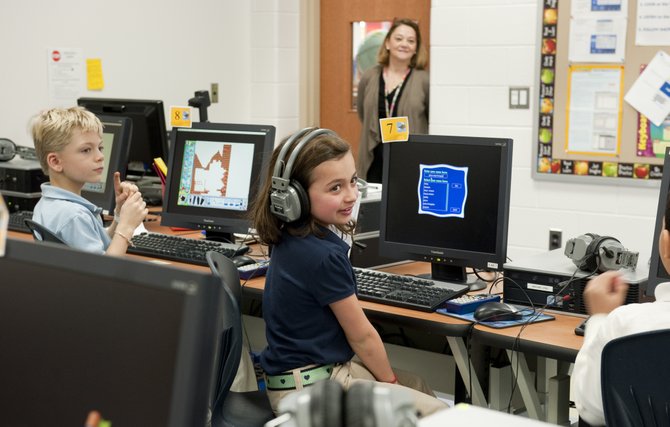Parents, kids and teachers must all work together to ensure a student gets the most out of school. Photo by Courtesy Flickr/MDGovpics
As an educator and a parent, I understand how important it is to have a good parent/teacher relationship from the beginning of the school year. All of my son's teachers know that I am only a phone call, text or email away if they need anything—good or bad. I am there to help in the classroom, bring things for parties and attend field trips. I am also there if they are experiencing any issues with my son, whether behaviorally or academically. As a parent, I know that, first and foremost, it is my responsibility to make sure my child is getting the education he needs.
I polled a group of my educator friends from different schools and districts in Mississippi and even out-of-state about parent/teacher relationships. I asked them: What can parents or guardians do to establish a good relationship with their child's teacher and school? These are the things they came up with.
Savanah, 6th grade teacher
• Parents should attend as many back-to-school events as possible to create a positive rapport with all staff and create relationships with fellow parents.
• Parents should listen to the teacher's expectations and talk to their child about why the teacher expects these things to happen at school. Let your child know you share these expectations with the teacher.
• The parent should make themselves available for conversation. Also, it never hurts to initiate the conversation; as a parent you may only have one or two kids to focus on; your child's teacher has 20 to 30.
Marissa, 7th and 8th grade math and resource teacher
• Maintain communication with the teacher. Tell the teacher any expectations and concerns you have for your child and listen to the teacher's expectations as well. Ask questions.
• Get involved. There are several ways parents can be a part of the learning process: field trips, PTA, fundraisers, open houses, award/talent shows, etc.
• Send your kids to school ready to learn. Arrange either breakfast at home or school, get them to bed at a proper time and make sure that they have needed supplies. If it's not possible to do these things, tell us. We would rather know ahead of time so we can be prepared.
• Be on the teacher's side if an issue arises. A student is less likely to take the teacher seriously if the parent openly shows lack of respect for the teacher, thus hindering the student from learning.
Price, high-school physics teacher
• Understand that the teacher's goals and your goals are the same for your child. You just may disagree with the method.
• Email the teacher when you have concerns. Don't jump straight to administrators to solve problems.
• Don't undermine the teacher in front of other students. Parent/teacher issues should be worked out in private without the student's involvement. Students should always see a good relationship between a teacher and his or her parents.
Meg, K-6 Interventionist
• Maintain constant communication. Be involved. Ask how you can help in the classroom and how you can assist your child reach his or her goals. Follow through.
Lynne, high-school English and journalism teacher
• Use email and texts and initiate communication when you need information from the teacher. Don't demand time-consuming phone calls when there are more convenient tools available.
• Utilize the teacher's communication tools, like a web page or online gradebook, to stay on top of your child's progress and assignments.
• Communicate any illnesses or special needs to the teacher. Don't let the teacher learn your child has asthma, diabetes or another health problem by surprise.
Katina, 3rd grade teacher
• First impressions are important.
Michael, elementary librarian and former 2nd grade teacher
• Realize we always have your child's best interest at heart.
• Support the teacher and always get both sides of a story before blaming the teacher.



Comments
Use the comment form below to begin a discussion about this content.
comments powered by Disqus